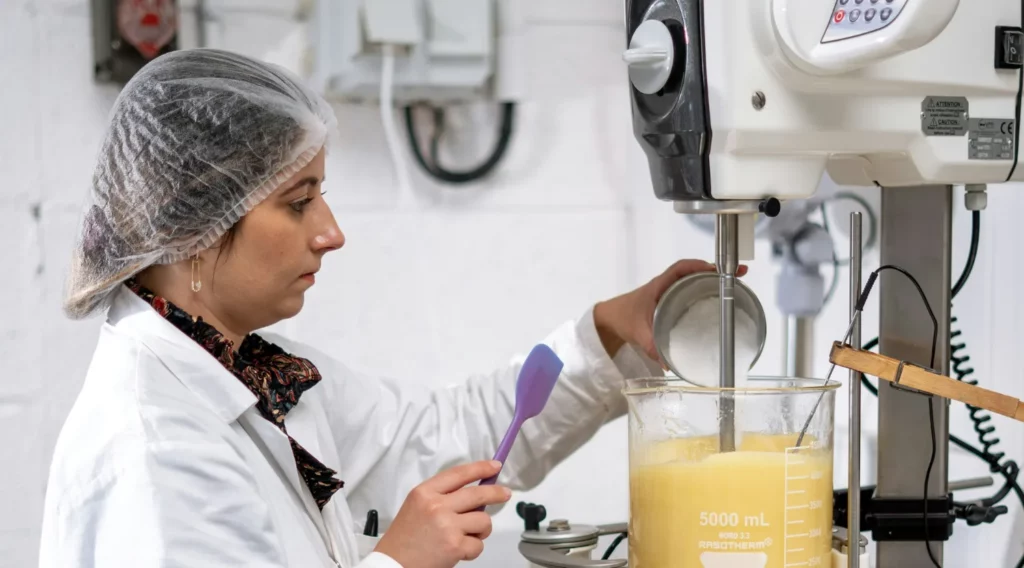Homogenization is a critical step in laboratory workflows, ensuring uniform sample consistency for accurate analytical results. Whether in biological research, pharmaceutical development, food testing, or material science, selecting the right homogenizer impacts efficiency and reproducibility.
In this guide, we explore hand-held homogenizers, high-speed homogenizers, bead homogenizers, and stomacher homogenizers, covering their differences, applications, and essential considerations. If you are searching for a homogenizer supplier in South Africa, Apex Scientific provides a range of options from Wiggens and Allsheng to meet diverse laboratory requirements.
Understanding the Different Types of Homogenizers
Hand-Held Homogenizers
Hand-held homogenizers are compact, versatile instruments used for quick sample preparation in low to medium volumes. These are ideal for biological samples, cell disruption, and emulsions in fields such as life sciences, pharmaceuticals, and chemistry.
Key Features:
- Interchangeable dispersing elements: Various probes accommodate different viscosities and sample types.
- Speed control: Adjustable RPM settings enhance efficiency for precise sample processing.
- Portable design: Lightweight and ergonomic, perfect for field and benchtop applications.
Applications:
- Cell disruption in DNA/RNA extraction
- Tissue homogenization for biochemical analysis
- Emulsions and suspensions in chemical and pharmaceutical formulations
Explore hand-held homogenizers from Wiggens for reliable performance.
High-Speed Homogenizers
High-speed homogenizers offer powerful motor-driven homogenization for large-volume and high-viscosity samples. These are commonly used in microbiology, pharmaceutical, and chemical industries.
Key Features:
- High shear forces: Efficiently breaks down tough samples.
- Broad speed range: Allows precise control over homogenization intensity.
- Versatile sample handling: Supports multiple probe types for various applications.
Applications:
- Emulsification in cosmetic and pharmaceutical formulations
- Dispersing powders into liquids in chemical processing
- Breaking down tough biological tissues for research
Apex Scientific supplies high-speed homogenizers from Wiggens, designed for demanding laboratory applications. View the full range here.
Bead Homogenizers
Bead homogenizers use mechanical agitation with grinding beads to break down samples. These are preferred for cell lysis, bacterial and yeast disruption, and protein extraction in molecular biology and microbiology labs.
Key Features:
- Fast and efficient sample processing
- Minimized sample contamination risk
- Ability to handle multiple samples simultaneously
Applications:
- DNA/RNA extraction for genetic research
- Protein and enzyme extraction in biochemistry
- Homogenization of hard tissues and microorganisms
For a complete range of bead homogenizers, explore our product selection.
Stomacher Homogenizers
Stomacher homogenizers (paddle blenders) are widely used in food microbiology and environmental testing. Unlike other homogenizers, these work by mechanical kneading within a sterile bag, eliminating cross-contamination risks.
Key Features:
- Sterile processing environment
- Gentle but effective sample blending
- Suitable for microbial testing and food safety applications
Applications:
- Food and beverage safety testing
- Microbiological sample preparation
- Drug testing in pharmaceutical research
Find stomacher homogenizers from leading manufacturers at Apex Scientific.
Choosing the Right Homogenizer for Your Application
When selecting a homogenizer, consider:
- Sample Volume & Viscosity
Small, low-viscosity samples? A hand-held homogenizer is ideal.
High-viscosity or large-volume processing? Opt for a high-speed homogenizer. - Homogenization Efficiency & Power
Need high shear forces for tough samples? Choose high-speed or bead homogenizers.
For microbial or food applications? A stomacher provides optimal results. - Sterility Requirements
Bead homogenizers and stomachers are best for applications requiring minimal contamination risks.
The Role of Dispersing Elements in Hand-Held Homogenizers
The dispersing element (or probe) in a hand-held homogenizer determines efficiency in sample breakdown. Key factors include:
- Material: Stainless steel probes resist corrosion, while plastic probes suit sensitive samples.
- Diameter: Smaller probes handle low-volume samples, whereas larger probes optimize bulk processing.
- Tip design: Flat tips suit general homogenization, while knife tips excel at tough tissue samples.
Apex Scientific offers a selection of dispersing elements for hand-held homogenizers, ensuring compatibility with various sample types.
Homogenizers in South Africa – Finding the Right Supplier
Apex Scientific is a trusted supplier of laboratory equipment in South Africa, offering homogenizers from Wiggens and Allsheng. Our expertise ensures laboratories receive the most suitable homogenization solutions based on technical specifications, applications, and budget considerations. Browse our homogenizer range or contact us for expert advice.
Conclusion
Selecting the right homogenizer enhances sample processing efficiency and accuracy. Whether you require a hand-held homogenizer, high-speed homogenizer, bead homogenizer, or stomacher, understanding technical specifications, applications, and accessory compatibility is crucial.
Apex Scientific provides a wide selection of homogenizers in South Africa, ensuring laboratories access the best solutions for their research and testing needs. Visit our homogenizer collection today!




